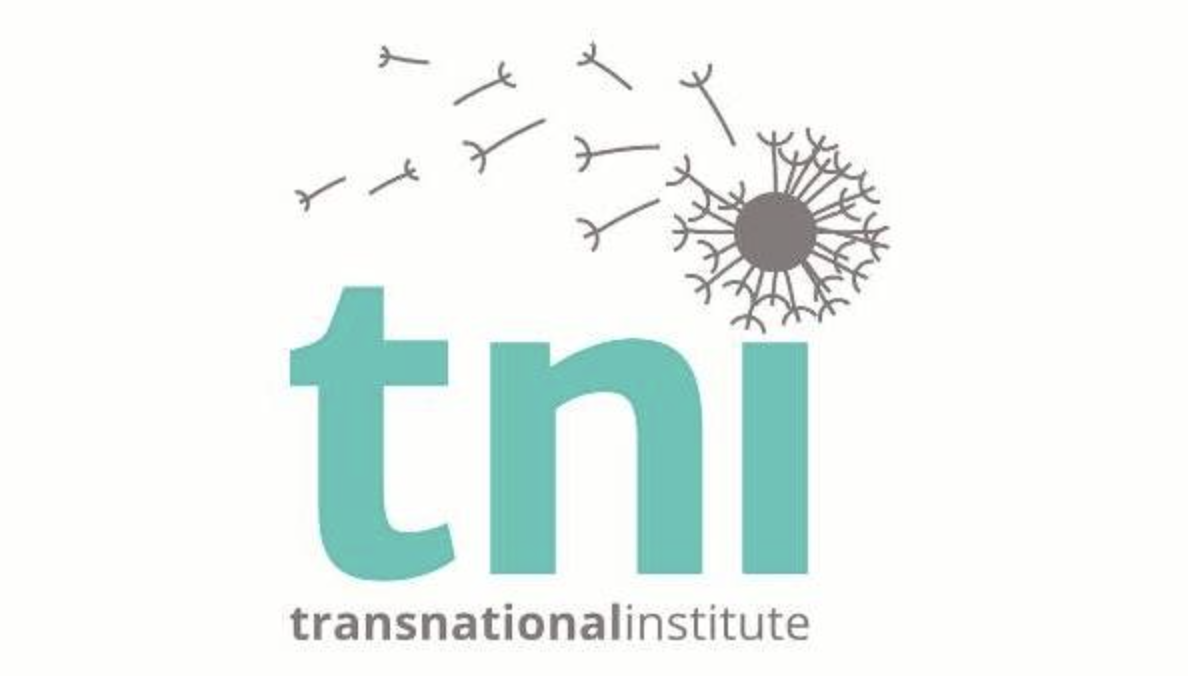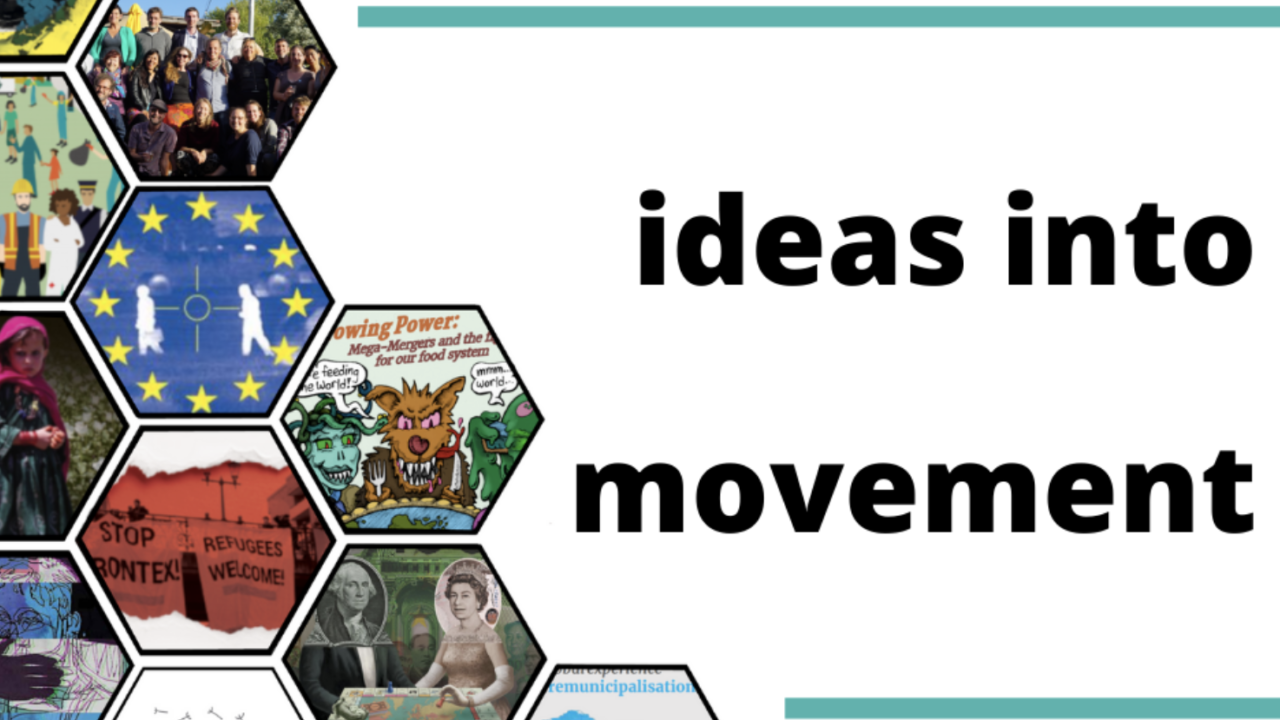“A European culture of solidarity must be rooted in the local context”
3 Mar 2021
In our series of interviews with our Culture of Solidarity Fund grantees, welcome to our conversation with Sol Trumbo Vila of Transnational Institute, an international research and advocacy institute committed to building a just, democratic and sustainable planet.
Who are you?
My name is Sol Trumbo Vila, I am originally from Valencia, Spain, but I am living in the Netherlands for eleven years, the last nine working in Amsterdam at the Transnational Institute. My passion is to design communication frames and platforms to expose unaccountable power structures and to advance democratic solutions to our global problems, particularly unequal access to basic human rights and the destruction of ecosystems. I have the privilege to pursue that passion through my work at the Transnational Institute.
What made you think of the project?
The last four years I have coordinated the Transformative Cities Initiative, a platform to navigate and strengthen the constellations of local initiatives building alternatives to the traditional market and state based models. Through this work we have worked with dozens of inspiring and transformative local initiatives from all over the world that are addressing global problems like access to water, housing, food and energy.
Our hypothesis was that despite their different local contexts, these local groups share notions of solidarity and cooperation, which lay the basis of their thinking and action, confronting that way a widespread narrative that links success with competitiveness and self-interest. The European continent has great need of a shared notion of solidarity and cooperation. Its main political space, the EU, fell short in this regard after the financial crisis as we witnessed in the way the Greek people, and others, were treated.
With the Covid19 relief packages we see again how the debate still is heavily conditioned under the terms of exchange and trade-off instead of solidarity and cooperation. We believe we can build a shared notion of European solidarity from local examples based on solidarity and cooperation. Therefore, we designed a process to foster the exchange between local European initiatives that operate with norms and practices based on values of solidarity and cooperation. This Peer to Peer process, that in this case we call Municipal to Municipal (M2M), will advance the creation of a much needed shared notion of European solidarity.

What will your project contribute to Europe, post-corona?
The Covid19 crisis highlights the importance of norms and practices based on values of solidarity and cooperation rather than competition and individualism. The need for such initiatives has been evident in Europe since the financial crisis of 2008, exacerbated by the climate emergency and the Covid19 pandemic. Whole ecosystems have emerged of local initiatives working to assure everyone access to essential goods and services such as water, housing, food and clean energy.
Our project provides a process for mutual exchanges and learning among inspiring communities with a view to building a shared notion of European cultures of solidarity based on local experiences.
The project intends to demonstrate that solidarity works to assure everyone’s basic needs are met, regardless of their status as rights-holding citizens or undocumented migrants or refuges. In so doing, it will build a compelling narrative and contribute to a pan-European movement that pushes back against privatizations, exclusion and nationalism, which will threaten equal access to the public goods and services that are essential for life.
The project goes beyond the immediate crisis as it lays the basis for a vision of the kind of communities we would all like to live in. The relationships created via this process of exchange, mutual learning and co-creation will establish the basis for future collaborations.
How do you envision your initiative to grow from local to pan European?
A European culture of solidarity must be rooted in values and practices that are also shared in the local context. By fostering the cross-border exchange of local communities rooted in a practice of solidarity and cooperation, we are configuring a shared European public space based on solidarity and cooperation.
The project will facilitate joint work between initiatives from eight different European countries – covering the key regions (East, West, North and South). The relationships fostered through the project will provide a basis for collaboration that will facilitate future collaborations at the European level. By exposing local communities to other cross-border networks such as new municipalism networks, commons networks, energy transition networks and social and solidarity economy networks, this experience will facilitate introductions and involvement.
As a result of this proces we will produce five cultural products based on their shared notion of a what a culture of European solidarity looks like. These products will be re imagined as a mosaic of inspiring experiences that will communicate what a culture of solidarity means in Europe, as seen through the lens of the local. The products will be disseminated by the participants groups to their local constituencies and shared in European spaces of debate.

Finally, how does your project help to make Europe an open and shared public space for everyone?
This project will demonstrate that Europeans of all kinds face fundamental questions such as access to water, housing, food and clean energy, and that local level solutions based on solidarity and cooperation are delivering solutions where the national and European level policies are falling short.
A European culture of solidarity rooted in the participant local practices will serve as an example on how solidarity and cooperation are the ways to go to preserve life and dignity. If the policy responses to the Covid19 crisis are similar to the responses to the post 2008 crisis, we can expect further eruptions of nationalism and cross-border animosity. The enhanced capacity of the solution-driven communities exchanging in this European space will prove the usefulness of creating open European level spaces based on a culture of solidarity and will contribute to a revival of European solidarity.
Granted: 23.875 euros
